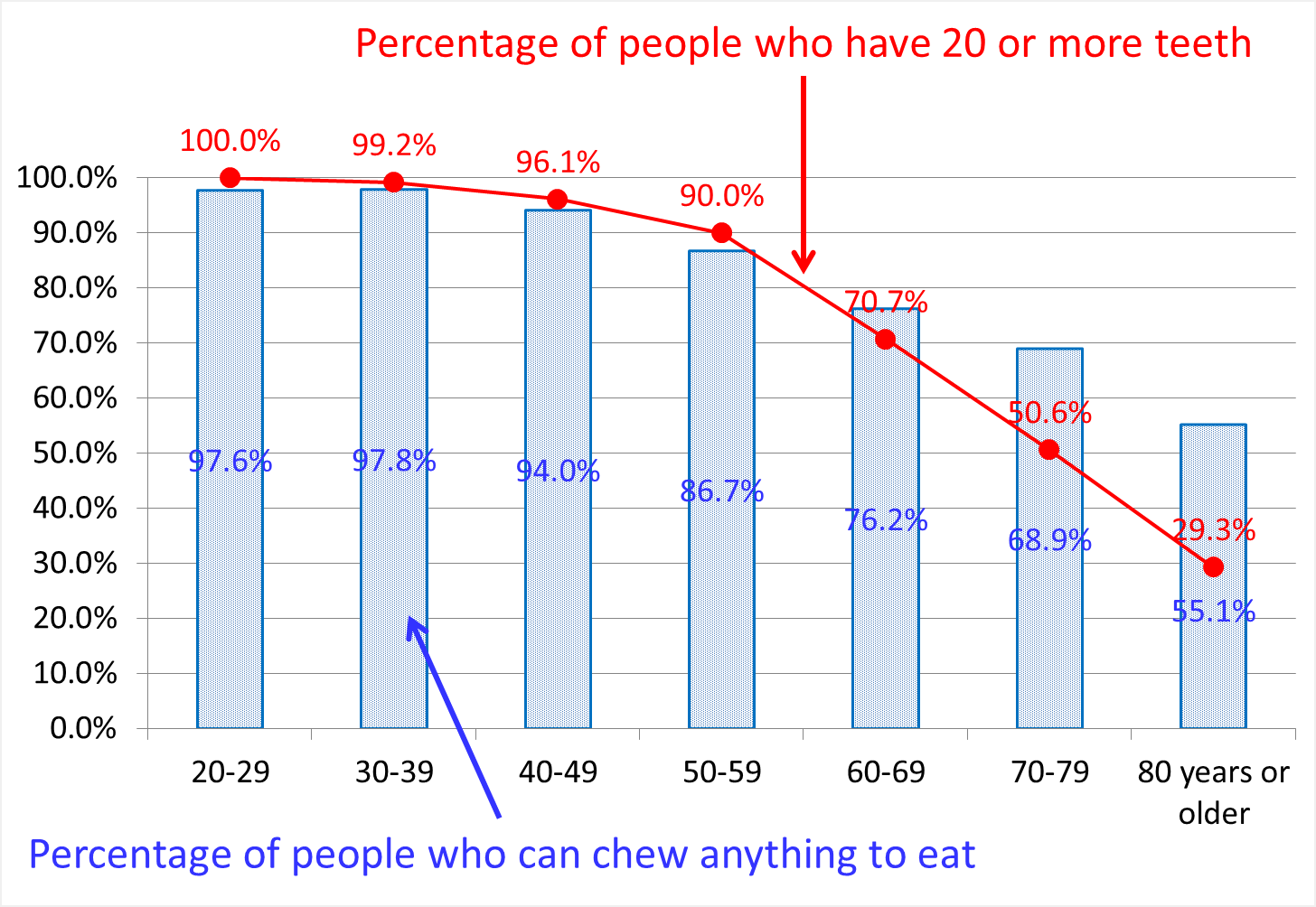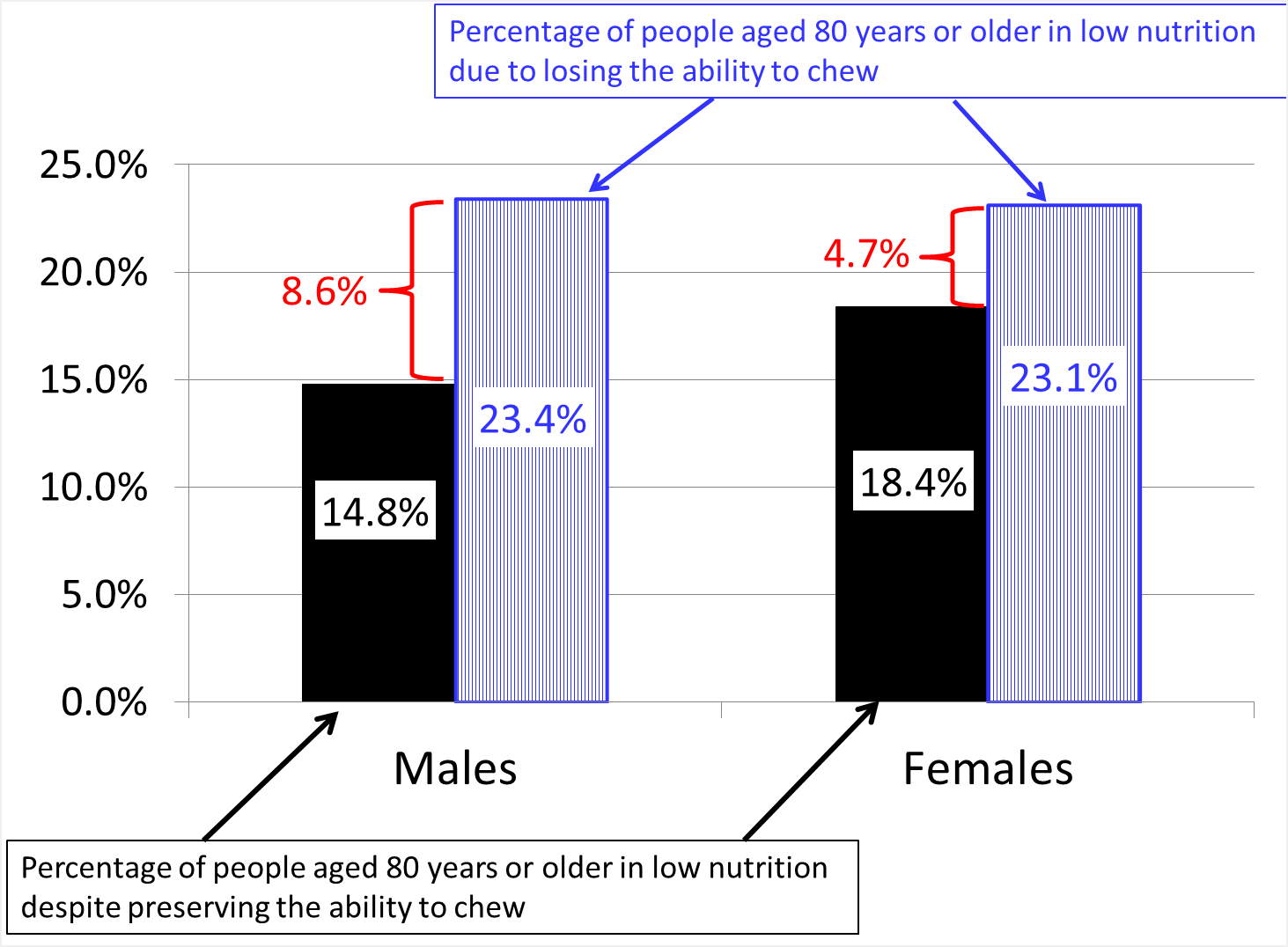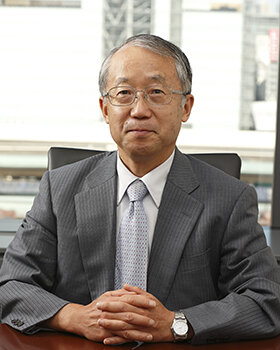Column Finance and the Social Security System 2019.02.27
【Aging, safety net and fiscal crisis in Japan】No.167: Dental health
An adult generally has 28 permanent teeth, excluding the wisdom teeth. As mentioned in Column No. 58, from the perspective of maintaining general health, oral care is very important. It has been said that if you still have more than 20 of your own teeth, your diet can be fairly satisfactory, healthy, and varied. The government has been encouraging citizens to preserve at least 20 of their own teeth to the age of 80.
In September 2018, the Ministry of Health, Labour and Welfare released a report concerning the National Health and Nutrition Survey that was conducted in 2017. Figure 1 shows the percentage of adults who have at least 20 of their own teeth and the percentage of adults who can chew most foods, according to age group. The percentage of adults preserving 20 or more teeth declines sharply after the age of 60.
Figure 2 shows the percentage of people aged 80 years and older who were judged as being undernourished according to their Body Mass Index (less than 20 kg/m2), by their ability to chew different foods, and by gender. Concerning males, the disparity of the percentage in low nutrition between people losing the ability to chew and people preserving it is 8.6%, compared to 4.7% for females.
Figure 1: State of dental health of adults in 2017

Source: Ministry of Health, Labour and Welfare
Figure 2: Percentage of people aged 80 years or older with low nutrition

Source: Ministry of Health, Labour and Welfare
